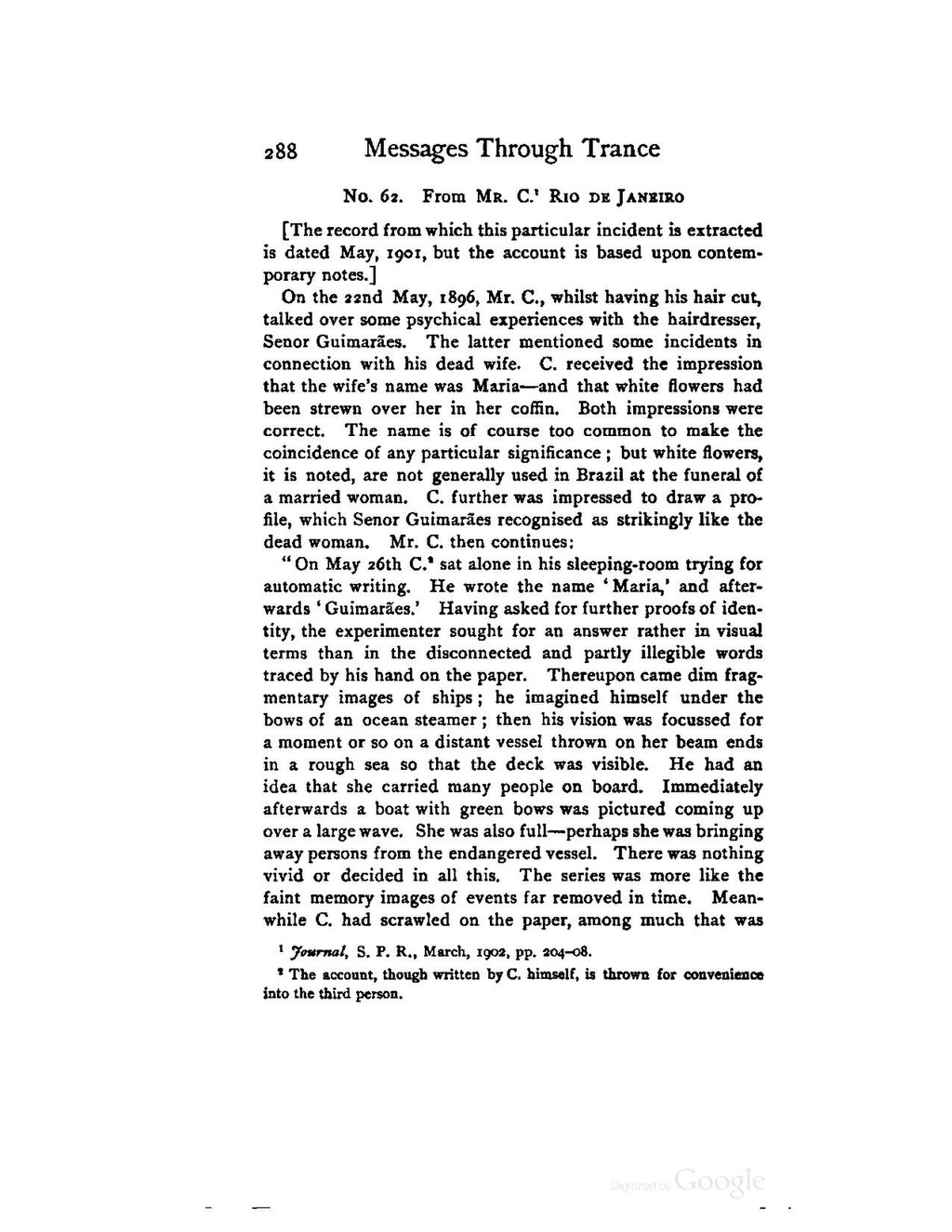No. 62. From Mr. C.[1] Rio De Janerio
[The record from which this particular incident is extracted is dated May, 1901, but the account is based upon contemporary notes.]
On the 22nd May, 1896, Mr. C., whilst having his hair cut, talked over some psychical experiences with the hairdresser, Senor Guimarães. The latter mentioned some incidents in connection with his dead wife. C. received the impression that the wife's name was Maria—and that white flowers had been strewn over her in her coffin. Both impressions were correct. The name is of course too common to make the coincidence of any particular significance; but white flowers, it is noted, are not generally used in Brazil at the funeral of a married woman. C. further was impressed to draw a profile, which Senor Guimãries recognised as strikingly like the dead woman. Mr. C. then continues:
"On May 26th C.[2] sat alone in his sleeping-room trying for automatic writing. He wrote the name 'Maria,' and afterwards 'Guimarães.' Having asked for further proofs of identity, the experimenter sought for an answer rather in visual terms than in the disconnected and partly illegible words traced by his hand on the paper. Thereupon came dim fragmentary images of ships; be imagined himself under the bows of an ocean steamer; then his vision was focussed for a moment or so on a distant vessel thrown on her beam ends in a rough sea so that the deck was visible. He had an idea that she carried many people on board. Immediately afterwards a boat with green bows was pictured coming up over a large wave. She was also full—perhaps she was bringing away persons from the endangered vessel. There was nothing vivid or decided in all this. The series was more like the faint memory images of events far removed in time. Meanwhile C. had scrawled on the paper, among much that was